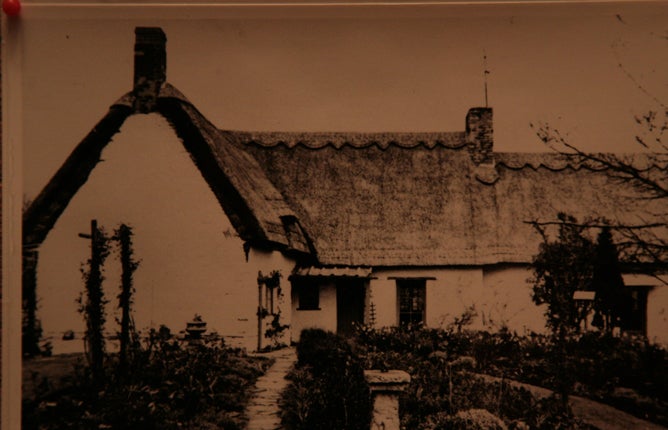The Ballad of John Clare, By Hugh Lupton

This novelisation of a year in the young life of the poet John Clare is a testament to a lifetime's groundbreaking commitment to folk culture. A renowned folk performer, but a first-time novelist, Hugh Lupton is neither a prose stylist, nor a formal innovator of fiction. But he is a master in two areas: storytelling and English rural folk culture. Lupton knows Clare and his village of Helpston, Northamptonshire, as well as anyone, and reconstructs Clare's times with a rare conviction. The context, landscape, language and texture of Clare's life and landscape are re-imagined in enchanting and accurate detail.
Clare has spoken to many creative people across the years: poets Arthur Symons and Edmund Blunden at the start of the twentieth century; Ted Hughes, Seamus Heaney, Derek Walcott and Paul Farley more recently. Playwrights have taken different routes through Clare's life: Edward Bond's play The Fool, revived brilliantly this year in Kilburn after a 35-year hiatus, sets the poet in a world of violent class war, while Simon Rae's play Grass, places an eco-warrior Clare in the 2001 foot-and-mouth pandemic.
Prose writers have also had varying takes on Clare: Alan Moore gives us a magical, anarchic version of Clare in Voice of the Fire; Iain Sinclair psycho-maps Clare's naturally contoured mind in Edge of the Orison; Richard Mabey takes Clare as his companion on a recovery from depression in the brilliant memoir Nature Cure. Serious thinkers like E. P. Thompson, Raymond Williams, Adam Phillips, Roy Porter and Ronald Blythe have also been thrilled by the access Clare provides to a long-forgotten, largely unwritten, world of labouring-class rural life and working intimacy with nature. Even Christopher Hitchens starts his polemic God is Not Great with an account of Clare.
But Clare's reach doesn't stop there. A wide variety of musicians continue to perform and record Clare's folksongs, fiddle music and ballads. The thriving John Clare Society will be thirty years old in 2012. Clare's poetry is now included in primary and secondary school curriculums. There are plans for TV documentaries and Hollywood interest too. His cottage in Helpston is now redeveloped into a glistening multi-million-pound Clare museum. This is truly Clare's moment – he's everywhere. But why is this previously obscure peasant poet of the natural world, born in poverty in 1793, who died in an asylum in 1864, suddenly of any relevance to us now?
The Ballad of John Clare provides the answer. Clare was born into a time of agricultural and social change. We live in a time of impending environmental catastrophe. The focus of this novel is enclosure – that massive reorganisation of the use of agricultural land that took place, parish by parish, inch by mapped inch, across the eighteenth and early nineteenth centuries. The rotating open field system of Clare's farming youth, peppered by common land, heaths, woods, scrub and wetlands, was reformed by Acts of Parliament. Rigid lines determined new ownership. Land was drained and reclaimed, hedged and fenced. Ditches were dug, rivers straightened, woodlands erased, and commons ploughed. Clare's horror at the abuses of the land around him – and the sheer ignorance of natural wonder that allowed it – led to a loss of a personal Eden from which he never recovered. There is therefore a direct relevance of Clare's poetic vision, and personal experience, to current anxieties about the ongoing impact of our industrialised, alienated distance from the earth and skies we continue to poison. Clare is now beginning to occupy the same place in relation to green environmentalism that Mary Wollstonecraft does in relation to feminism. Embedded within his proto-green politics is a celebration of common customs and common land, and an acute eye for an extraordinary rural life now all but gone.
Join our commenting forum
Join thought-provoking conversations, follow other Independent readers and see their replies
Comments
Bookmark popover
Removed from bookmarks